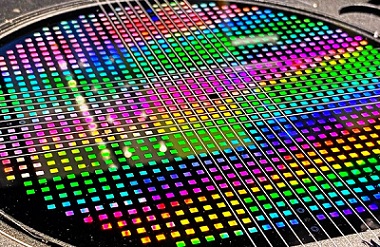
NIL Technology Raises $31M to Scale Manufacturing
Flat optics developer NIL Technology (NILT) has raised €29 million (~$31.2 million) to help scale its manufacturing organization and capabilities. According to the company, with demand for its technology increasing, the company has matured its meta-optics technology from design to prototyping and is placing focus on bolstering its nano-imprint lithography (NIL)-based production process to meet higher-volume requests.

NILT’s manufacturing process fabricates wafers containing thousands of metasurface lenses (shown) using nanoimprint lithography. The company will use its recent funding to boost its manufacturing capabilities and capacity in order to meet rising demand. Courtesy of NIL Technology.
According to NILT, the NIL-based manufacturing strategy enables more precise and versatile nanostructures for higher performance meta-optics. High-volume production will be necessary to produce meta-optics for use in consumer electronics products such as smartphones and AR/VR headsets, and in automotive and robotics applications, the company said.
NIL Technology recently brought to market its MetaEye eye-tracking camera which targets applications in augmented reality, security, and sensing.
The funding was led by a group of investors including the Export & Investment Fund of Denmark, Jolt Capital, NGP Capital, and Swisscanto Private Equity.
/Buyers_Guide/NIL_Technology/c31392